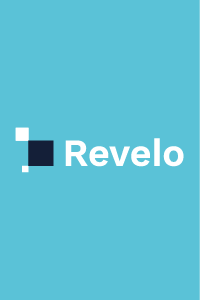Are you a big-picture person who enjoys new ideas and finds detail work tedious?
Most first-time sellers assume their lawyer will “work out the details” after signing a letter of intent (LOI). However, Warren Buffett advises locking in critical terms before handing your deal to a lawyer to paper.
An LOI is typically a non-binding offer from an acquirer, outlining their proposal to buy your business. It often includes a “no-shop” clause, requiring you to suspend talks with other acquirers during an exclusive period (usually around 60 days). It’s in the acquirer’s interest to secure a vague LOI; this way, after you’ve lost negotiating leverage, they can start tilting the deal in their favor.
Your job is to ensure you get clear on the deal terms that are important to you before you sign an LOI. Here are 10 things to agree on before signing an LOI:
- Sale Price: To state the obvious, you should agree on the amount the acquirer is offering to pay. Never agree to a multiple of earnings/revenue or a range of value as both can be manipulated down during diligence. You’re looking for an actual number.
- Cash Up Front: Referred to as the “downstroke” in M&A parlance, you need clarity on how much of your consideration you get up front and how much you stand to earn in future payments tied to reaching a future goal (or your tenure as their employee).
- Currency: Make sure it’s clear how an acquirer intends to pay you. Are you getting your upfront consideration in U.S. dollars or are they proposing to pay you with their company’s stock?
- Earn Out: Most small deals, particularly in service firms, include an earn-out based on future goals. Seek clarity on these goals, your operational control, and your budget. Link your earn-out to controllable metrics, as Rob Walling did by tying his to the launch of a nearly finished product feature when he sold Drip.
- Escrow: This is a percentage of the deal that is given to a lawyer to hold on to for a period of time to ensure there are no disputes after the sale.
- Working Capital: What formula is the acquirer proposing they use to figure out how much money you have to leave in your company bank account(s) the day you hand them the keys? If you’ve built up retained earnings in a company bank account, you probably think of that money as yours, but your acquirer may see things differently. Work that out before you sign a letter of intent.
- Debt: If you have borrowed money, your LOI should stipulate what happens to the debt when you hand over the keys.
- Exclusivity Period: Get clear on how long the acquirer has to do their diligence before the exclusivity period expires. You want this to be as short as possible which is why Tyler Smith pushed Fidelity to close in 25 days when he sold 67% of Skyslope at a value of $80 million.
- Your Employees: What happens to your team? What commitments is the acquirer making to keep people? Who will be leaving? What material changes to their employment (location, work-from-home policy, perks) is the acquirer proposing to change?
- Your Role Post-Sale: In addition to your earn-out, you also need to know the basic terms of your employment as an executive with the acquiring company. What will your salary be? Will you be entitled to benefits? Severance?
This week we dropped an interview with Jay B. Sauceda who built a logistics company that helped brands like Howler Brothers ship online orders. At their peak, Sauceda’s company had a 150,000-square-foot warehouse and 150 employees and was on track to hit $14 million in annual sales when a fateful meeting at an industry conference led Cart.com to make an acquisition offer Sauceda couldn’t refuse. Before signing the deal, Jay B ensured that he had an ironclad agreement from Cart on the four deal terms that were important to him.
In this clip, Jay B explains how his careful negotiation of the LOI (Letter of Intent) played a crucial role in speeding up the closing process to just 30 days.
📣 Quote of the Week
“We Spent a Lot of Time on The LOI.”
– Jay B. Sauceda on avoiding re-trading.
Advertisement
Hire vetted developers in US time zones, fast.
Need speed and flexibility in scaling dev teams? Revelo is the largest platform to hire world-class remote developers from LatAm. Get matched with vetted candidates in 3 days and receive a $2,500 credit on your first hire.

📈 Deals
- Privately held Almost Famous, a designer and marketer of women’s apparel, has been acquired by Steven Madden, Ltd. (Nasdaq: SHOO), a leading fashion footwear, accessories, and apparel designer and marketer. Almost Famous, which sells its own brands and private label products to various retailers, including as the exclusive licensee of Madden NYC apparel, generated approximately $163 million in revenue in the 12 months ending September 30, 2023. The acquisition was completed for $52 million in cash, subject to a working capital adjustment, and includes an earn-out provision based on future financial performance. This purchase aligns with Steven Madden’s historical acquisition strategy, valuing Almost Famous at an estimated 4 times its EBITDA.
- Fleetwood Aluminum Products, LLC (“Fleetwood”), a designer and manufacturer of aluminum-framed glass doors and windows for luxury homes, has been acquired by Masonite International Corporation (“Masonite”), a major player in the door manufacturing industry for $285 million in cash. Fleetwood is projected to contribute approximately $150 million in incremental full-year revenue to Masonite in 2024. Considering expected tax benefits related to the acquisition, the purchase price equates to approximately $255 million, or roughly 7 times Fleetwood’s anticipated 2024 EBITDA.



